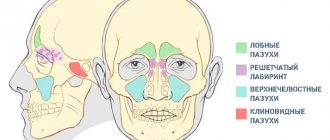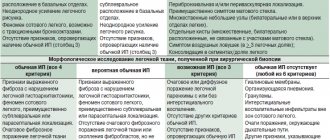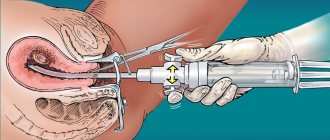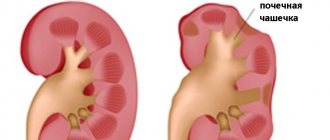Infectious diseases arise due to the entry and reproduction of various microorganisms and parasites in the human body. A specialist in this pathology is an infectious disease doctor. Infectious diseases can develop against the background of various chronic pathologies in the body, and against the background of infection, decompensation of the existing disease occurs. Infectious diseases can lead to the development of surgical pathology, and in severe cases to urgent conditions requiring resuscitation. Therefore, an infectious disease doctor must know the specifics of all related medical fields and have resuscitation skills. An infectious disease doctor must have knowledge in specific laboratory diagnostics aimed at identifying the pathogen. Know the current current epidemiological situation regarding infectious diseases in the region.
Who is an infectious disease specialist
An infectious disease specialist is a specialist who studies infectology (the science of infections).
Such a doctor receives his education at a medical university, after which he supplements it with post-medical education. This period - internship - lasts 2-4 years. After this, the doctor can begin independent practice.
The subject of his study is the ways of occurrence and causes of infections, their manifestations and development in the human body, comprehensive treatment regimens and preventive measures.
Since infectious pathologies can affect almost all human organs and organ systems, impeccable knowledge of all the intricacies of anatomy is a prerequisite for a doctor of this specialization.
The main areas in which the causative agents of most infections are concentrated, determined by an infectious disease specialist, are divided into the following types:
- intestinal infections - the pathogen is swallowed with food or comes into contact with dirty hands;
- blood diseases (vector-borne) - transmitted through the bites of blood-sucking insects;
- blood diseases (non-transmissible) - infection occurs during the transfusion of donor blood or due to the use of contaminated needles for injections;
- respiratory infections - the pathogen enters the respiratory tract during inhalation;
- skin infections - can enter the body through contact of the pathogen with the skin or mucous epithelium.
In addition, an infectious disease specialist oversees immunization processes and participates in the development of anti-epidemiological measures.
Pediatric pulmonologist: who is he, what does he do and what does he treat in children?
The doctor's specialization includes a huge number of pathologies from bronchitis to the detection of malformations of the respiratory tract. In some cases, for example, with tuberculosis, a pulmonologist can make a diagnosis, but another doctor, a phthisiatrician, will handle the treatment. A pulmonologist works closely with doctors from other fields - a pediatrician, an allergist, an ENT doctor, an immunologist, which allows him to evaluate the child’s disease from all sides and select the optimal treatment regimen.
What pathologies are within the competence of a pulmonologist for children:
- acute, obstructive and chronic bronchitis;
- pneumonia;
- pleurisy;
- alveolitis;
- bronchiolitis;
- asthmatic conditions;
- various fibroses;
- all kinds of abscesses and emphysema;
- chronic obstructive pulmonary disease (COPD).
In most cases, children are referred to a respiratory specialist for consultation by pediatricians or related physicians. Parents bring their children on their own much less often, since without medical knowledge and skills it is extremely difficult to distinguish a cough due to laryngitis from a cough due to pneumonia.
What diseases does it treat?
Infectious diseases that fall under the purview of an infectious disease specialist are divided into 4 categories:
- Zoonoses. Such infections develop after certain microbes enter a person from the body of animals. The most common of them include rabies, anthrax, malaria, botulism, plague, etc.
- Anthroponoses. A person can only become infected with such diseases from other people, since pathogens live only within the human body. These include rotavirus, typhoid fever, cholera, polio, etc.
- Sapronoses. Microorganisms that cause sapronoses live in the soil, natural reservoirs and other inanimate natural objects.
- Parasitic infections. An extensive group of diseases caused by worms, roundworms and other protozoa. In our latitudes, ascaridiosis, giardiasis, toxocariasis, etc. occur.
In most cases, infectious disease specialists undergo in-depth specialization, according to which they are divided into the following specialized areas:
- Immunologist-infectious disease specialist. He is in charge of identifying and treating chronic infectious pathologies that can significantly worsen the patient’s immunity. This picture is observed in asthmatics, patients with mononucleosis and certain sexually transmitted diseases.
- Virologist. Qualifies for viral diseases. Since the life activity of viruses and the principles of their treatment are somewhat different from bacteria and protozoa, working with them requires special skills and knowledge that a virologist has. Viral pathologies include HIV, cytomegaly, influenza, rubella, hepatitis and viral pneumonia, measles and many others.
- Parasitologist. Its specificity is represented by parasitic pathologies that can cause damage to various types of tissue and organs, deficiency of nutrients in the body and other manifestations. Most often, parasitologists have to deal with ascariasis, scabies, echinococcosis, helminthiasis, encephalitis and other diseases.
Appeals
Scheduled appointment
The KIZ doctor is a specialist in a narrow profile, so an appointment with him is carried out through a therapist if there are indications. To visit an infectious disease specialist, it is advisable to have at least the primary tests on hand:
- general and biochemical blood tests;
- general urine analysis;
- fluorography;
- Ultrasound of the abdominal organs.
This applies to the initial appointment for non-emergency reasons.
Emergency appointment
When can you see an infectious disease specialist without a referral from a general practitioner:
- acute infectious disease - chickenpox, intestinal infection, measles, rubella, scarlet fever;
- a scheduled appointment with a person at a dispensary - usually the CIZ doctor himself sets the date for the next appointment;
- an infectious disease diagnosed during self-testing or in another hospital - for example, viral hepatitis or helminthiasis.
At the same time, it is also advisable to have the results of tests and previous examinations with you. There is no need to take special tests for specific infections - the doctor himself will determine what kind of examination is needed.
Issuance of certificates
What you need to have with you to obtain certificates:
- employment, admission to study - blood test for typhoid fever, HIV, viral hepatitis; swab from the nose and throat for diphtheria, streptococcus, Staphylococcus aureus; feces for helminths, protozoa;
- guardianship, adoption - blood test for HIV, viral hepatitis; fluorography result.
All analyzes are valid for a month.
To register a disability at the initial appointment, you do not need certificates - the doctor issues a list of examinations depending on the disease.
Pediatric infectious disease specialist
An infectious disease specialist working in pediatrics deals with a certain list of typical diseases characteristic of childhood. Thus, children's respiratory organs are more vulnerable to infections than adults, so respiratory diseases spread quickly in gardens. In addition, a child can suffer greatly from an intestinal infection, even when all family members suffer from it practically asymptomatically. A pediatric infectious disease specialist is familiar with all age-related features of the course of these pathologies.
Most often, he treats children for diseases such as measles, scarlet fever, diphtheria, whooping cough, rubella, rotavirus, mumps, etc.
Infectious disease
Patients are admitted to the infectious diseases hospital by referral from a general practitioner, a clinical medical specialist or an ambulance if they suspect an acute infectious disease, as well as in case of exacerbation of chronic infections requiring hospital treatment.
The hospital for infectious diseases is a separate complex and is not part of the general hospital. As a rule, an infectious diseases hospital consists of several buildings:
- general department - for patients with ARVI, extraintestinal helminthiasis, erysipelas, viral hepatitis;
- department of intestinal infections;
- boxed department - for patients with chickenpox, measles, rubella, herpes zoster, scarlet fever.
The boxed department includes wards for patients with especially dangerous and imported infections. Some infectious diseases hospitals are additionally equipped with an intensive care unit.
This is a general description of the work of infectious disease specialists. Depending on the region, medical care has its own characteristics.
In what cases should I contact
Most infectious diseases quickly manifest themselves and have a pronounced picture: accompanied by fever or intestinal disorders. But some can develop quite long and slowly.
Signs that you need to see an infectious disease doctor cannot be ignored, since the pathology can quickly worsen and lead to disability or even death. Reasons for contacting may be:
- frequent or severe headaches;
- sleep disturbances (asomnia or excessive sleepiness);
- signs of sexually transmitted infection (itching, purulent discharge from the vagina, urethra or penis);
- damage to mucous tissues;
- increased fatigue;
- aches and pains in muscles;
- swollen lymph nodes;
- rashes and redness on the skin or mucous epithelium;
- high fever, vomiting, nausea, constipation, diarrhea and other signs of intoxication.
Infectiology
Infectiology is a science that deals with the treatment and prevention of diseases of an infectious nature. It is known for certain that many different diseases - from practically harmless to the most dangerous - are of the same nature. Its name is infection. Spreading quickly, it has a pathological effect on the body, worsening well-being and undermining the health of the sick person. The best solution in such a case would be to consult an experienced infectious disease doctor. He will be able to quickly and correctly diagnose the disease, as well as offer the optimal course of treatment.
In the world, among all recorded cases of diseases, 24% are infectious. In Russia, an average of 29 million such cases are registered per year, and in “fruitful” periods this figure reaches 50 million. On the other hand, the number of new infections, previously unknown to science, is increasing. Suffice it to recall that if in the 50s there were about a thousand infectious diseases, now there are more than 1200 of them.
When do children need to be examined by a pulmonologist?
Reasons for consultation are:
- frequent hacking cough without sputum discharge, which is accompanied by shortness of breath and a feeling of lack of air;
- prolonged cough of any nature;
- the appearance of sputum mixed with blood and pus when coughing;
- cough with pink foam;
- acute pain in the sternum, worsening with inhalation;
- any chest pain accompanied by difficulty breathing;
- cough against the background of obvious intoxication: fever, weakness, sweating;
- the appearance or intensification of a dry cough in the evening, at night;
- labored breathing;
- difficulty breathing, lack of air due to certain irritants - flowers, dust, in case of changes in air parameters;
- attacks of suffocation;
- heavy breathing with wheezing, whistling and other sounds;
- coughing and coughing that occurs in a healthy child after crying, screaming, active games, or sports activities.
The doctor’s scope of activity also includes the rehabilitation of young patients after severe forms of illness: pneumonia, obstructive bronchitis, bronchiotitis. During this period, the pediatric pulmonologist checks how the child’s body is recovering, clarifies what worries the patient or parents, and adjusts the treatment if necessary.
What does a pediatric pulmonologist do during an appointment?
At the first meeting with the young patient and his parents, the doctor first collects a detailed medical history. The pulmonologist needs to know literally everything about the child:
- age and characteristics of childbirth;
- previous illnesses, surgeries and other invasive procedures;
- frequency and severity of illnesses;
- chronic pathologies in close relatives;
- clinical symptoms of the disease, time of their appearance and rate of increase;
- what and how the baby was treated before going to the doctors.
What does a pulmonologist examine in children during an appointment:
- oral cavity;
- throat and nasal passages;
- skin;
- chest to clarify the structural features and development.
After a visual examination, the doctor begins auscultation of the lungs - a method of listening to the organs of the respiratory system using a special instrument (phonendoscope). During auscultation, a pulmonologist can hear characteristic wheezing, whistling and other side noises during breathing, compare the functioning of the right and left lungs, and evaluate the overall functioning of the system. Based on the medical history and examination data, the doctor may prescribe tests and additional instrumental examination.








